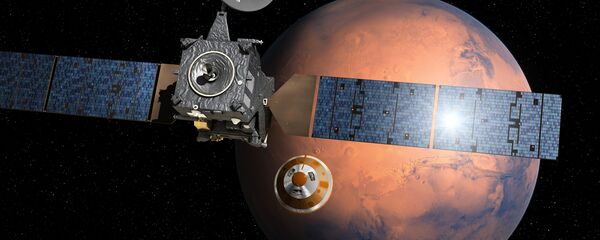May 9 to 12 saw the Humans to Mars Summit in Washington, a meeting of spaceflight industry leaders to hash out the specifics of a plan to transport humans to Mars. This is a task of monumental complexity — so complex that not even NASA may be able to plan it out.
A panel at Humans to Mars compared the Mars missions of today to the Apollo missions from the 1960s. Then-President John F. Kennedy gave NASA a clear timeline: place a man on the Moon by 1970. Congress enforced the president's will, and in 1969 NASA did as the government bade them.
The panelists argued that a similar timeline is what NASA needs now. "The human race is capable of incredible things when given a deadline. And they're capable of incredible procrastination without a deadline," said panelist Rob Chambers, production strategy lead for NASA's Orion human space capsule. "We are closer to Mars today than we ever were to the moon in [1961] and [1962], bar none. So what we need is a deadline."
Chambers' comments were an answer to a question posed by NASA's Goddard Space Flight center senior scientist Harley Thronson. Thronson asked the panel what they wanted to see from "decision makers" like Congress and NASA leadership.
"What's your objective? When do you want to get there?" said panelist Mike Fuller, an employee of aerospace manufacturer and NASA contractor Orbital ATK. "Because that's going to … tell us how much we need to spend, when to spend it and what our milestones are along the way."
Fuller outlined that two branching paths have posed themselves to NASA: one where the goal is simply to put a man on Mars (a la the Apollo program), or one where the goal is to put a man on Mars and keep him there as part of a permanent colony. A long-term colony will need long-term funding, and that means any Congressional appropriations would need to be insulated from changes in lawmakers and administrations over election cycles.
Humphrey Price, chief engineer of NASA's Jet Propulsion Laboratory's (JPL) Mars Exploration Program, said that he wanted to see a program with a specific name, objective, and deadline. "It would need to be informed with a reasonable budget, so that it would start off at, let's say, $1 billion per year," Price said.
"And it would continue going up, and at some point, it would ramp up to whatever the steady state level of that program's going to be, which — I'll just put out a number; it's a notional number, $4 billion a year — and it's designed so that this is a line-item-funded program every year."






